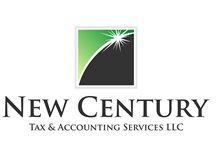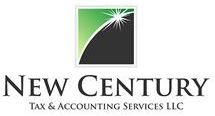Essential Tax Strategies for Small Businesses
Mar 26 2025 16:00
Managing taxes effectively is a complex yet crucial aspect of running a small business. Strategic tax planning is not just about compliance; it significantly reduces tax liabilities, thereby enhancing the financial health and growth potential of your business. We understand the numerous challenges small business owners face during tax season. High-level tax strategies serve as a beacon of guidance through this intricate landscape.
Let's delve into nine critical tax strategies every small business should consider:
Accurate Record-Keeping:
Meticulous record-keeping is a fundamental practice. It ensures smoother tax filing and helps identify deduction opportunities. Keep detailed accounts of all transactions, maintain receipts, and use accounting software to simplify the process.
Maximizing Deductions:
Essential deductions such as office rent, travel expenses, and employee salaries can significantly reduce your taxable income. Consult with a tax professional to ensure no deduction is overlooked. For instance, home office expenses can also be deducted if you meet the IRS requirements.
Retirement Plan Contributions:
Contributing to retirement plans such as a 401(k) can lower your tax rate. This is because contributions are made before-tax income, reducing your taxable income for the year.
Claiming Available Credits:
Key tax credits, like the Work Opportunity Tax Credit and the Small Business Healthcare Tax Credit, directly reduce the tax you owe. Check eligibility requirements and claim these credits to decrease your financial burden.
Income and Expense Timing:
Manage your cash flow strategically by deferring income or accelerating expenses, depending on your accounting method. This tactic can help smooth out your tax obligations and maximize deductions during your high-earning years.
Estimated Taxes:
To avoid penalties, ensure you pay estimated taxes quarterly. Calculate your tax liability accurately to prevent underpayment or overpayment scenarios.
Business Structure Adjustment:
Choosing the right business structure can bring substantial tax advantages. Whether you're considering an LLC, S-corporation, or another entity, it's critical to consult with a professional before making changes.
Health Insurance Deductions:
If you're self-employed, you can deduct health insurance premiums for yourself, your spouse, and dependents. This can significantly reduce your taxable income and should be factored into your overall tax strategy.
Car Expenses for Business Use:
Using a personal car for business purposes offers deductible expenses. Whether you opt for the standard mileage rate or actual expenses method, ensure you keep detailed records to support your deductions.
Strategic tax planning has the potential to transform your small business's financial landscape. With the right strategies in place, navigating tax season becomes a more manageable and beneficial process. Take a proactive approach to your tax planning by reviewing current strategies and considering new ones. Consulting with a tax professional can help tailor these strategies to your unique business needs. Feel free to share your own tax tips and strategies in the comments to foster a community of shared knowledge and support.

